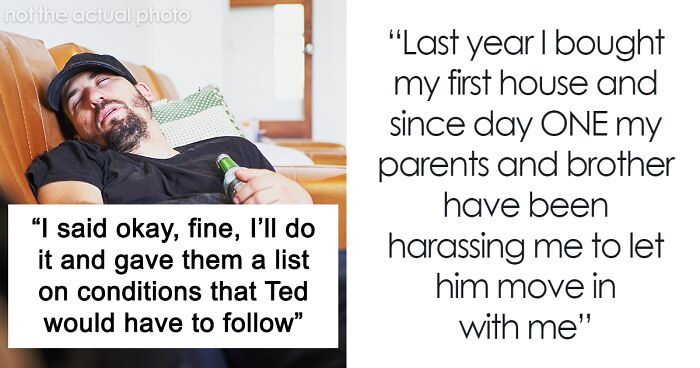
Person Takes A “Wonderfully Evil” Route To Make Parents Understand Their “No” To Taking Brother In
There’s nothing shameful about living with your parents. In fact, 19.2% of young adults in America still do. However, it can get a little strange when you’re 42. By that time, many people have a steady job, accommodation, and financial independence.
But not this guy. At 42, he’s still living at his parents’ house, doesn’t have a job, doesn’t do chores, and disrespects his parents. So, his sibling had no desire to take him in. They did, however, share a story of how they tricked the parents by pretending they were going to let him move in. Twice.
Many a family has their black sheep: the one sibling that might be a little bit of a freeloader
Image credits: daniskim (not the actual photo)
This sibling had no desire to let their deadbeat brother move in, so they got petty revenge on the nagging parents to stop the demands
Image credits: Iakobchuk (not the actual photo)
Image credits: YuriArcursPeopleimages (not the actual photo)
Image source: extraradishes
The parents aren’t doing anyone any favors by enabling the brother’s self-destructive behavior
Image credits: Iakobchuk (not the actual photo)
It’s natural for parents to want to take care of their children, even when they’re adults. But sometimes, their help might not be enough. In fact, they might even be doing their adult children a disservice by taking care of them too much.
Substance abuse, of course, often complicates things even more. A 2023 survey revealed that 16.7% of Americans battled a substance abuse disorder in the last year. In that regard, the parents are not alone in their predicament. They might, however, be engaging in enabling behavior.
The term means allowing a loved one to continue going down a path of self-destruction, and it is usually used in contexts of people with addiction. “Often, the enabler is aware of the destructiveness of the person’s behavior but feels powerless to prevent it,” according to the APA. The role of the enabler usually falls on the shoulders of a spouse or a family member.
Enabling hurts both parties and, in some cases, even outsiders. The experts at Family First Intervention claim that enabling is selfish. Not for the son and brother, in this case, but for the parents. “You are putting them closer to danger and drastically reducing their ability to see the need to address their problem when you selfishly make them comfortable,” they write.
Family members should try to empower, not enable, their troubled loved ones
Image credits: Sơn Bờm (not the actual photo)
Enabling is common in codependent relationships; parents and other loved ones often solve or cover the person’s problems for them. Enablers are often guided by misplaced concern. They honestly think that they are helping and genuinely want to do so. They just go about it the wrong way.
One of the reasons people might enable their loved one’s self-destructive behavior is that they saw the same pattern at home when they were a child. Those who experienced neglect or abuse, had dismissive or overprotective parents, or have an anxious attachment style might be more prone to enable a family member.
However, the harsh reality is that enabling never works out for the better. “We have never heard of one case or incident where the family comforted the addict or alcoholic, and the situation improved,” Family First Intervention writes.
Instead of enabling, experts recommend opting for empowerment. Empowering someone means giving them the tools, helping them access the resources, and teaching them the skills to overcome their struggles.
Another important aspect of no longer enabling a loved one is establishing clear boundaries. The first and most important step in this is saying a firm “no.” As Clinical Psychologist Adam Borland, PsyD, explains, “The person needs to know that they can no longer manipulate the situation as they’ve done in the past.”
“Ending an enabling relationship requires assertiveness — the ability to say no,” he says. “For a lot of people, learning to be assertive is a new and potentially uncomfortable skill set.” However, the enablers are the ones who have to take the first step. If they truly want to help their troubled family member, they’ll surely have to step out of their comfort zone.
Many people related to the author, calling their plan “genius”
Poll Question
Thanks! Check out the results:
Explore more of these tags
Me: “That’s really mean. That’s really mean. Wait…that’s kinda brilliant.” Sometimes people need a mirror held up to a situation to see it clearer. The enablers are sometimes the hardest people to get to change when getting someone out of a destructive cycle.
I don't approve of the method but it got the desired result. Hi parents just need to kick the brother out and let him sink or swim long his own. Unless he has a physical or mental health issues that mean he shouldn't be living alone at his age his parents are doing him absolutely no favors to him. Basically they've enabled his behavior
Me: “That’s really mean. That’s really mean. Wait…that’s kinda brilliant.” Sometimes people need a mirror held up to a situation to see it clearer. The enablers are sometimes the hardest people to get to change when getting someone out of a destructive cycle.
I don't approve of the method but it got the desired result. Hi parents just need to kick the brother out and let him sink or swim long his own. Unless he has a physical or mental health issues that mean he shouldn't be living alone at his age his parents are doing him absolutely no favors to him. Basically they've enabled his behavior

 Dark Mode
Dark Mode 

 No fees, cancel anytime
No fees, cancel anytime 



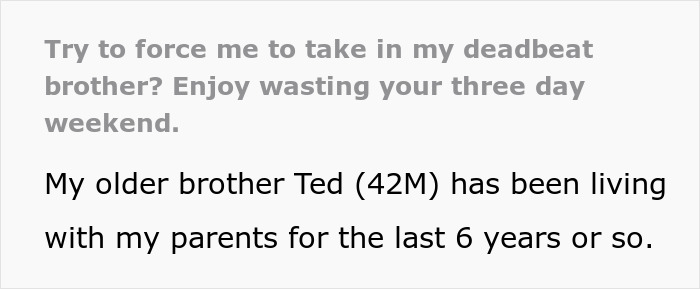
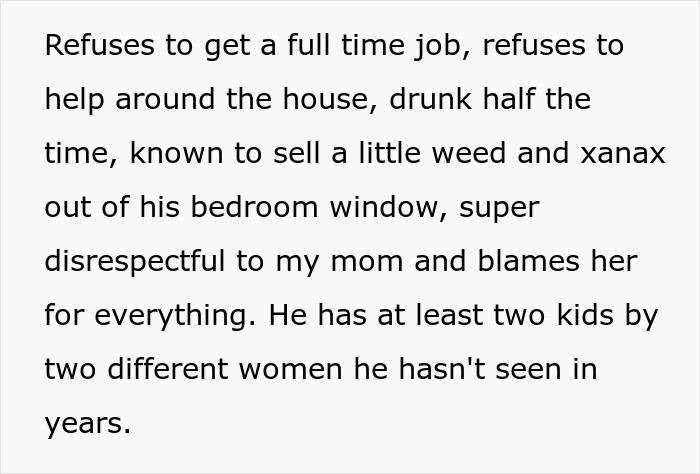
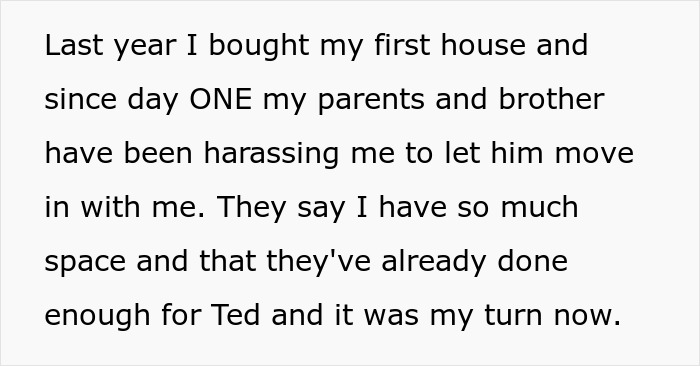
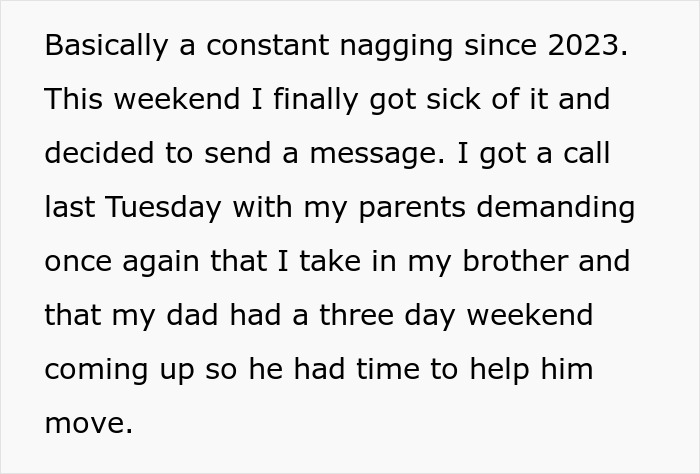
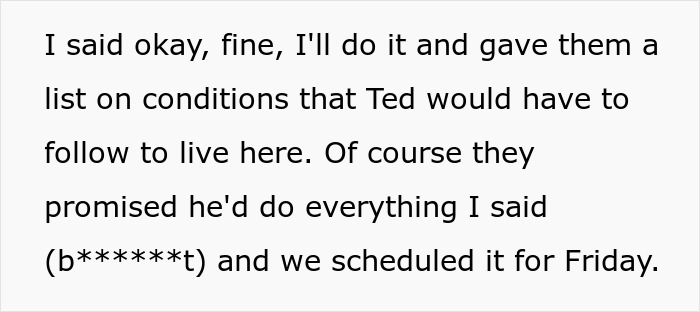



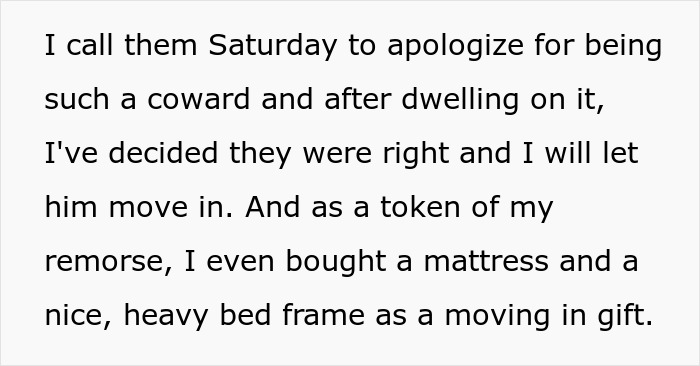



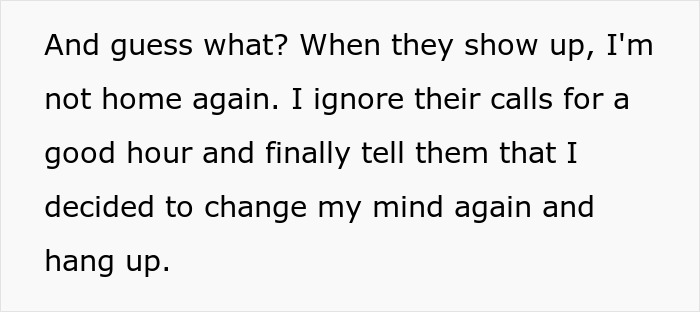

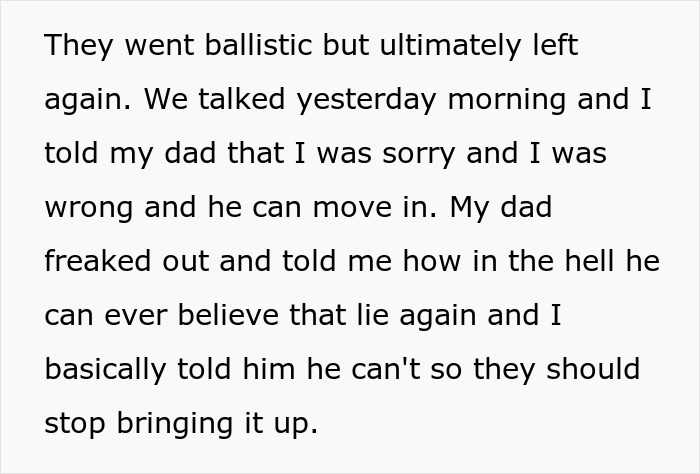
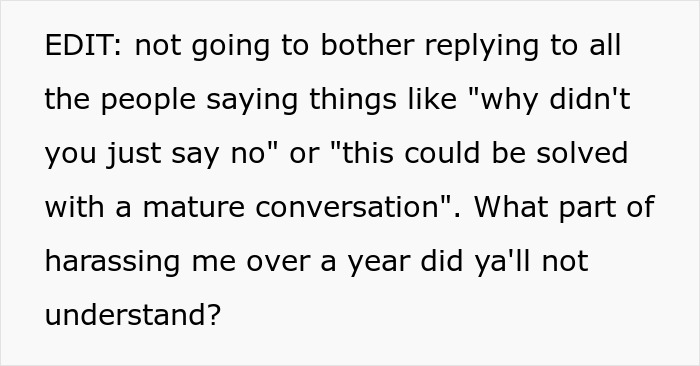
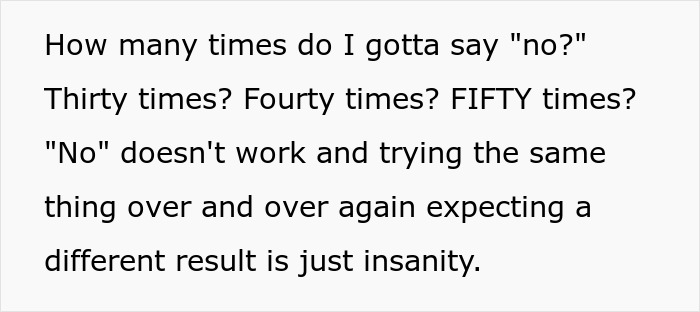






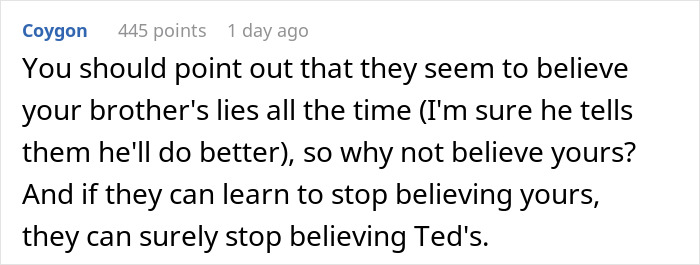


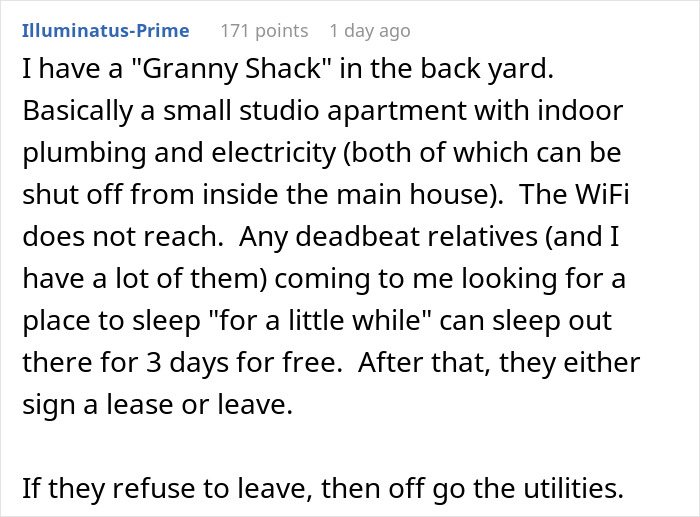






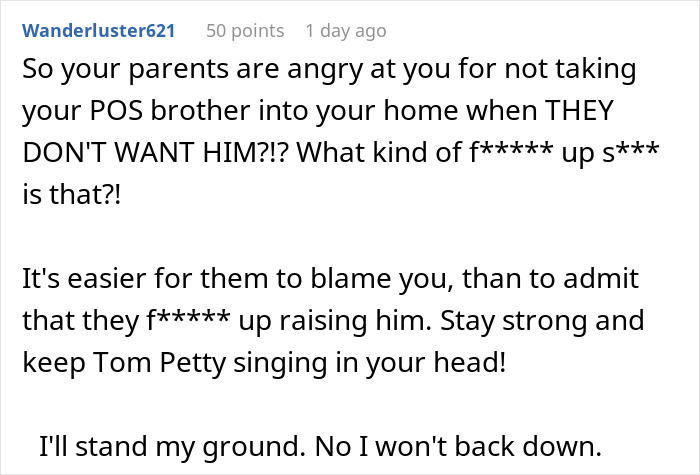


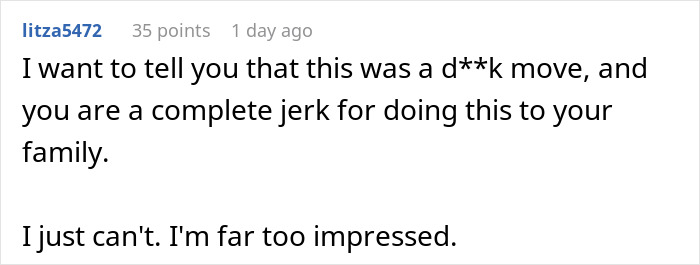












































62
48